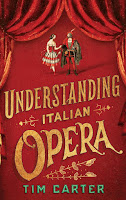Cesare Andrea Bixio - composer and lyricist
Pioneer of Italian film music left catalogue of classic songs
Cesare Andrea Bixio, the composer behind such classic Italian songs as Vivere, Mamma, La mia canzone al vento and Parlami d'amore Mariù, was born in Naples on this day in 1896. Bixio enjoyed many years of popularity during which his compositions were performed by some of Italy's finest voices, including Beniamino Gigli, Tito Schipa and Carlo Buti, and later became staples for Giuseppe Di Stefano and Luciano Pavarotti. He was also a pioneer of film soundtrack music, having been invited to compose a score for the first Italian movie with sound, La canzone dell'amore, in 1930. As well as writing more than 1,000 songs in his career, Bixio penned the soundtracks for more than 60 films. Bixio's father, Carlo, was an engineer from Genoa; his grandfather was General Nino Bixio, a prominent military figure in the drive for Italian Unification and one of the organisers of Garibaldi's Expedition of the Thousand. Carlo, who died when Cesare was only six years old, married a Neapolitan, Anna Vilone, who wanted him to pursue a career in engineering, like his father. However, after developing an interest in music at an early age he had other ideas. Read more…
______________________________________
Pierre-Napoleon Bonaparte – adventurer
Colourful life of Italian-born prince
Prince Pierre-Napoleon Bonaparte, a nephew of the Emperor Napoleon, was born on this day in 1815 in Rome. He was to become notorious for shooting dead a journalist after his family was criticised in a newspaper article. Bonaparte was the son of Napoleon’s brother, Lucien, and his second wife, Alexandrine de Bleschamp. He grew up with his nine siblings on the family estate at Canino, about 40 kilometres north of Rome. The young Bonaparte helped to keep bandits at bay, spending a lot of time with the local shepherds who were armed and had dogs to protect them. He set out on a career of adventure, joining bands of insurgents in the Romagna region as a teenager. In 1831 he spent time in prison for a minor offence and was banished from the Papal States. He went to the United States to join his uncle, Joseph Bonaparte, in New Jersey. He spent some time in New York before going to serve in the army of the President of Columbia. At the age of 17 he became the President’s aide and was given the rank of Commander. Bonaparte returned to the family estate at Canino where he enjoyed hunting with his brothers. Read more…
______________________________________
Anita Cerquetti – soprano
Performer with a powerful voice had brief moment in the spotlight
Anita Cerquetti, the singer whose remarkable voice received widespread praise when she stood in for a temperamental Maria Callas in Rome, died on this day in 2014 in Perugia. Cerquetti had been singing the title role in Vincenzo Bellini’s Norma at Teatro San Carlo in Naples in 1958 when Callas, who had been singing the same part in Rome, walked out after the first act on the opening night. Despite Callas claiming that her voice was troubling her, the incident, in front of Italian President Giovanni Gronchi, created a major scandal. Fortunately the performances in Rome and Naples were on alternate days and so for several weeks Cerquetti travelled back and forth between the two opera houses, which were 225km (140 miles) apart. The achievement left her exhausted and three years later she retired from singing and her magnificent voice was heard no more. Cerquetti was born in Montecosaro near Macerata in the Marche. She studied the violin, but after a music professor heard her singing at a wedding she was persuaded to switch to vocal studies. After just one year she made her debut singing Aida in Spoleto in 1951. Read more…
______________________________________
Book of the Day: Understanding Italian Opera, by Tim Carter
Opera is often regarded as the pinnacle of high art. It is where music and drama come together in unique ways, supported by stellar singers and spectacular scenic effects. Yet it is also patently absurd -- why should anyone break into song on the dramatic stage? -- and shrouded in mystique. In this engaging and entertaining guide, renowned music scholar Tim Carter unravels its many layers to offer a thorough introduction to Italian opera from the 17th to the early 20th centuries. Eschewing the technical musical detail that all too often dominates writing on opera, Carter begins instead where the composers themselves did: with the text. Walking readers through the relationship between music and poetry that lies at the heart of any opera, he offers explorations of five of the most enduring and emblematic Italian operas: Monteverdi's The Coronation of Poppea; Handel's Julius Caesar in Egypt; Mozart's The Marriage of Figaro; Verdi's Rigoletto; and Puccini's La bohème. Shedding light on the creative collusions and collisions involved in bringing opera to the stage, the various, and varying, demands of the text and music, and the nature of its musical drama, Carter also shows how Italian opera has developed over the course of music history. Understanding Italian Opera is a must-read for anyone with an interest in and love for this glorious art.Tim Carter was born in Sydney, Australia, in 1954 and studied in the United Kingdom at the University of Durham and then under Nigel Fortune at the University of Birmingham. His research focuses on how music works in the theater, whether in late Renaissance and early Baroque Italy, Mozart’s Italian operas, or American musical theater in the mid-20th century. He is David G. Frey Distinguished Professor of Music at the University of North Carolina, Chapel Hill.
.jpg)



No comments:
Post a Comment